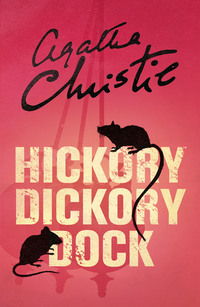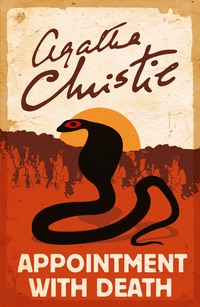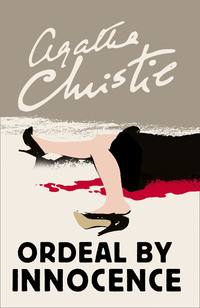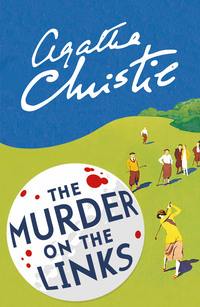
Полная версия
Destination Unknown
‘Can any of this possibly matter?’
And to that he had replied quietly:
‘Probably not. But you’ve got to make yourself into the authentic article. Think of it this way, Hilary. You’re a writer. You’re writing a book about a woman. The woman is Olive. You describe scenes of her childhood, her girlhood; you describe her marriage, the house she lived in. All the time that you do it she becomes more and more of a real person to you. Then you go over it a second time. You write it this time as an autobiography. You write it in the first person. Do you see what I mean?’
She nodded slowly, impressed in spite of herself.
‘You can’t think of yourself as Olive Betterton until you are Olive Betterton. It would be better if you had time to learn it up, but we can’t afford time. So I’ve got to cram you. Cram you like a schoolboy—like a student who is going in for an important examination.’ He added, ‘You’ve got a quick brain and a good memory, thank the Lord.’
He looked at her in cool appraisement.
The passport descriptions of Olive Betterton and Hilary Craven were almost identical, but actually the two faces were entirely different. Olive Betterton had had a quality of rather commonplace and insignificant prettiness. She had looked obstinate but not intelligent. Hilary’s face had power and an intriguing quality. The deep-set bluish-green eyes under dark level brows had fire and intelligence in their depths. Her mouth curved upwards in a wide and generous line. The plane of the jaw was unusual—a sculptor would have found the angles of the face interesting.
Jessop thought: ‘There’s passion there—and guts—and somewhere, damped but not quenched, there’s a gay spirit that’s tough—and that enjoys life and searches out for adventure.’
‘You’ll do,’ he said to her. ‘You’re an apt pupil.’
This challenge to her intellect and her memory had stimulated Hilary. She was becoming interested now, keen to achieve success. Once or twice objections occurred to her. She voiced them to Jessop.
‘You say that I shan’t be rejected as Olive Betterton. You say that they won’t know what she looks like, except in general detail. But how sure can you be of that?’
Jessop shrugged his shoulders.
‘One can’t be sure—of anything. But we do know a certain amount about the set-up of these shows, and it does seem that internationally there is very little communication from one country to another. Actually, that’s a great advantage to them. If we come upon a weak link in England (and, mind you, in every organization there always will be a weak link) that weak link in the chain knows nothing about what’s going on in France, or Italy, or Germany, or wherever you like, we are brought up short by a blank wall. They know their own little part of the whole—no more. The same applies the opposite way round. I dare swear that all the cell operating here knows is that Olive Betterton will arrive on such and such a plane and is to be given such and such instructions. You see, it’s not as though she were important in herself. If they’re bringing her to her husband, it’s because her husband wants her brought to him and because they think they’ll get better work out of him if she joins him. She herself is a mere pawn in the game. You must remember too, that the idea of substituting a false Olive Betterton is definitely a spur of the moment improvisation—occasioned by the plane accident and the colour of your hair. Our plan of operation was to keep tabs on Olive Betterton and find out where she went, how she went, whom she met—and so on. That’s what the other side will be on the look-out for.’
Hilary asked:
‘Haven’t you tried all that before?’
‘Yes. It was tried in Switzerland. Very unobtrusively. And it failed as far as our main objective was concerned. If anyone contacted her there we didn’t know about it. So the contact must have been very brief. Naturally they’ll expect that someone will be keeping tabs on Olive Betterton. They’ll be prepared for that. It’s up to us to do our job more thoroughly than last time. We’ve got to try and be rather more cunning than our adversaries.’
‘So you’ll be keeping tabs on me?’
‘Of course.’
‘How?’
He shook his head.
‘I shan’t tell you that. Much better for you not to know. What you don’t know you can’t give away.’
‘Do you think I would give it away?’
Jessop put on his owl-like expression again.
‘I don’t know how good an actress you are—how good a liar. It’s not easy, you know. It’s not a question of saying anything indiscreet. It can be anything, a sudden intake of the breath, the momentary pause in some action—lighting a cigarette, for instance. Recognition of a name or a friend. You could cover it up quickly, but just a flash might be enough!’
‘I see. It means—being on your guard for every single split second.’
‘Exactly. In the meantime, on with the lessons! Quite like going back to school, isn’t it? You’re pretty well word perfect on Olive Betterton, now. Let’s go on to the other.’
Codes, responses, various properties. The lesson went on; the questioning, the repetition, the endeavour to confuse her, to trip her up; then hypothetical schemes and her own reactions to them. In the end, Jessop nodded his head and declared himself satisfied.
‘You’ll do,’ he said. He patted her on the shoulder in an avuncular manner. ‘You’re an apt pupil. And remember this, however much you may feel at times that you’re all alone in this, you’re probably not. I say probably—I won’t put it higher than that. These are clever devils.’
‘What happens,’ said Hilary, ‘if I reach journey’s end?’
‘You mean?’
‘I mean when at last I come face to face with Tom Betterton.’
Jessop nodded grimly.
‘Yes,’ he said. ‘That’s the danger moment. I can only say that at that moment, if all has gone well, you should have protection. If, that is to say, things have gone as we hope; but the very basis of this operation, as you may remember, was that there wasn’t a very high chance of survival.’
‘Didn’t you say one in a hundred?’ said Hilary drily.
‘I think we can shorten the odds a little. I didn’t know what you were like.’
‘No, I suppose not.’ She was thoughtful. ‘To you, I suppose, I was just …’
He finished the sentence for her. ‘A woman with a noticeable head of red hair and who hadn’t the pluck to go on living.’
She flushed.
‘That’s a harsh judgement.’
‘It’s a true one, isn’t it? I don’t go in for being sorry for people. For one thing it’s insulting. One is only sorry for people when they’re sorry for themselves. Self pity is one of the biggest stumbling-blocks in the world today.’
Hilary said thoughtfully:
‘I think perhaps you’re right. Will you permit yourself to be sorry for me when I’ve been liquidated or whatever the term is, in fulfilling this mission?’
‘Sorry for you? No. I shall curse like hell because we’ve lost someone who’s worthwhile taking a bit of trouble over.’
‘A compliment at last.’ In spite of herself she was pleased.
She went on in a practical tone:
‘There’s just one other thing that occurred to me. You say nobody’s likely to know what Olive Betterton looks like, but what about being recognized as myself? I don’t know anyone in Casablanca, but there are the people who travelled here with me in the plane. Or one may of course run across somebody one knows among the tourists here.’
‘You needn’t worry about the passengers in the plane. The people who flew with you from Paris were business men who went on to Dakar and a man who got off here who has since flown back to Paris. You will go to a different hotel when you leave here, the hotel for which Mrs Betterton had reservations. You will be wearing her clothes and her style of hairdressing and one or two strips of plaster at the sides of your face will make you look very different in feature. We’ve got a doctor coming to work upon you, by the way. Local anæsthetic, so it won’t hurt, but you will have to have a few genuine marks of the accident.’
‘You’re very thorough,’ said Hilary.
‘Have to be.’
‘You’ve never asked me,’ said Hilary, ‘whether Olive Betterton told me anything before she died.’
‘I understood you had scruples.’
‘I’m sorry.’
‘Not at all. I respect you for them. I’d like to indulge in them myself—but they’re not in the schedule.’
‘She did say something that perhaps I ought to tell you. She said “Tell him”—Betterton, that is—“tell him to be careful—Boris—dangerous—”’
‘Boris.’ Jessop repeated the name with interest. ‘Ah! Our correct foreign Major Boris Glydr.’
‘You know him? Who is he?’
‘A Pole. He came to see me in London. He’s supposed to be a cousin by marriage of Tom Betterton.’
‘Supposed?’
‘Let us say, more correctly, that if he is who he says he is, he is a cousin of the late Mrs Betterton. But we’ve only his word for it.’
‘She was frightened,’ said Hilary, frowning. ‘Can you describe him? I’d like to be able to recognize him.’
‘Yes. It might be as well. Six feet. Weight roughly, 160 pounds. Fair—rather wooden poker face—light eyes—foreign stilted manner—English very correct, but a pronounced accent, stiff military bearing.’
He added:
‘I had him tailed when he left my office. Nothing doing. He went straight to the US Embassy—quite correctly—he’d brought me an introductory letter from there. The usual kind they send out when they want to be polite but non-committal. I presume he left the Embassy either in somebody’s car or by the back entrance disguised as a footman or something. Anyway he evaded us. Yes—I should say that Olive Betterton was perhaps right when she said that Boris Glydr was dangerous.’
Конец ознакомительного фрагмента.
Текст предоставлен ООО «ЛитРес».
Прочитайте эту книгу целиком, купив полную легальную версию на ЛитРес.
Безопасно оплатить книгу можно банковской картой Visa, MasterCard, Maestro, со счета мобильного телефона, с платежного терминала, в салоне МТС или Связной, через PayPal, WebMoney, Яндекс.Деньги, QIWI Кошелек, бонусными картами или другим удобным Вам способом.









